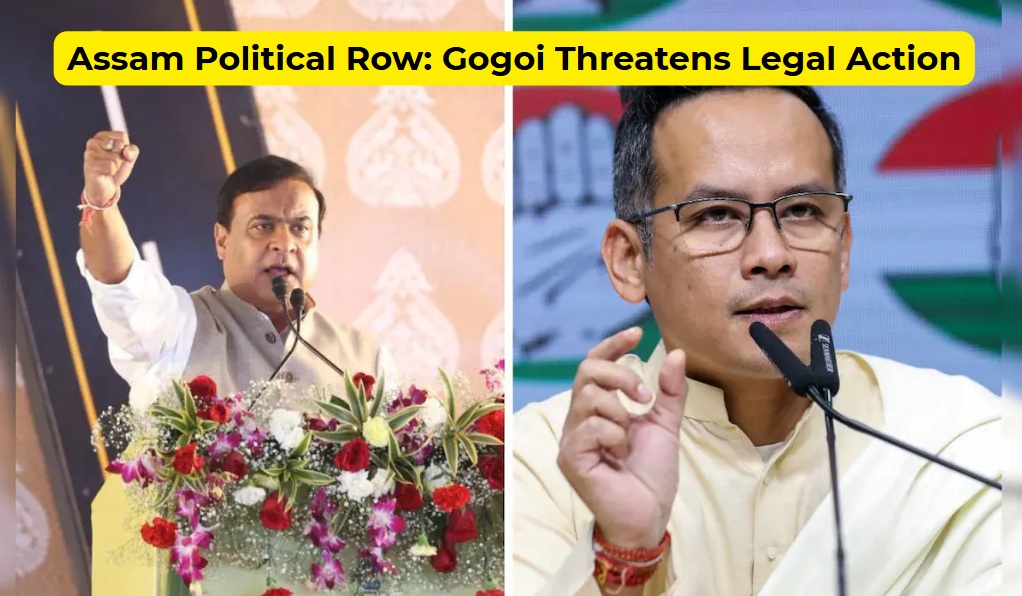At the beginning of the week, former U.S. President Donald Trump described trade with India as a “totally one-sided disaster.” By the weekend, however, his tone had dramatically shifted: he hailed Prime Minister Narendra Modi as a “great leader” and emphasized that the two would “always remain friends.”
What explains this sudden reversal? Was it merely a diplomatic adjustment, or is there a deeper geopolitical game at play? Evidence suggests that Trump’s flattering remarks were not spontaneous goodwill, but a forced retreat after a controversial plan to destabilize Modi’s government was exposed.
Trump’s Shifting Stance on India
Donald Trump has always had an unpredictable approach toward India. At times, he has weaponized tariffs against New Delhi, at other times he has leaned toward Beijing, and suddenly, he has showered praises on Prime Minister Modi. This erratic diplomacy raised questions: Was Trump merely improvising, or was there a larger strategy being orchestrated from behind the scenes?
Just a few days ago, Trump was openly critical of India, casting doubts about its reliability as a partner and suggesting that New Delhi was slipping away from U.S. influence. Yet, almost overnight, he began describing Modi as a trusted ally and India as a “special friend.”
The Alleged CIA-Backed Operations
Sources point to a much deeper conspiracy. According to insiders, sections of the American “Deep State” – including factions within the CIA – had been running covert projects known as Operation CP (Change the Person), Operation RC (Regime Change), and Operation 37.
Operation CP (Change the Prime Minister): A strategy aimed at removing leaders who resist U.S. dominance, particularly those pushing for self-reliance, defense independence, or financial systems outside the dollar’s grip.
Operation RC (Regime Change): Modeled after similar interventions in Bangladesh and Pakistan, this method attempts to replace an entire government considered hostile to U.S. strategic interests.
Operation 37: Allegedly involved attempts to influence and manipulate at least 37 Indian MPs through psychological pressure and covert persuasion, creating political instability from within.
The underlying objective: weaken Modi’s leadership and replace him with a more pliable figure aligned with American strategic and economic interests.
Why Modi Became a Target
Prime Minister Modi’s policies increasingly frustrated Washington’s establishment. His insistence on:
Technology transfer in defense deals instead of one-sided purchases,
Strengthening India’s rupee and UPI system as alternatives to dollar dependency,
Expanding India’s strategic autonomy instead of acting as a subordinate ally,
…made him a thorn in the side of the U.S. Deep State. Unlike smaller nations where regime-change tactics had succeeded, India under Modi proved resilient.
The Role of Indian Intelligence
The turning point came when Indian intelligence agencies reportedly uncovered these covert plans. According to leaks, even insiders close to Trump were secretly passing critical information to Indian agencies. This revelation shocked Washington’s power brokers.
Prime Minister Modi, already aware of the brewing conspiracy, maintained a deliberate diplomatic distance—allegedly ignoring repeated calls from Trump as tensions escalated. His silence was not hesitation, but strategy: a calculated demonstration that India would not be treated like Nepal, Bangladesh, or Sri Lanka, where external manipulation has historically destabilized governments.
Why Trump Backed Down
When the U.S. realized that its covert operations had been exposed, Trump had little choice but to retreat. Publicly praising Modi and reaffirming friendship was a face-saving exercise—a way to control damage and avoid diplomatic collapse.
This climbdown also revealed a larger truth: India’s intelligence capabilities are now considered comparable to global heavyweights like the CIA and Mossad. For the first time, the U.S. was forced to acknowledge that India could not be coerced or undermined through traditional regime-change tactics.
The Domestic Factor: India’s Political Stability
The alleged plan hinged on exploiting internal divisions. With a minority government in power, even a bloc of 37 defecting MPs could have triggered political chaos. Opposition leaders, journalists, and certain international lobbies had begun speculating that Modi’s fall was imminent—“just a matter of two months.”
However, Modi’s political instincts and Chanakya-like strategy neutralized these threats. His public speeches even hinted at the looming conspiracy, warning that he was willing to pay a personal price to safeguard India’s sovereignty.
The Larger Message
Trump’s sudden U-turn carries several lessons:
India’s resilience: Attempts to destabilize New Delhi failed because of strong political leadership and robust intelligence.
Diplomatic maturity: Modi managed to expose U.S. double-dealing without provoking open hostility, turning the situation to India’s advantage.
Global recognition: The episode reaffirmed India’s status as a rising power that can no longer be pushed into submission.
Conclusion: A Foiled Conspiracy, A Stronger India
The alleged U.S.-backed operations against Prime Minister Modi reveal the extent to which global powers seek to influence India’s political direction. Yet, the failure of these plans has strengthened Modi’s image both at home and abroad.
What was meant to be a covert regime-change attempt has instead highlighted India’s independence, the capability of its intelligence network, and the determination of its leadership. Trump’s flattering words, while surprising on the surface, are in reality an admission of defeat.
India has sent a clear message to the world: this is no longer a submissive state that can be manipulated. With 1.4 billion citizens behind it, India is an autonomous power whose leadership cannot be toppled by external conspiracies.
#trump, #pmmodi, #dailydozes, #cia, #tariffs, #trumptariffs, #indiausrelations, #ajitdoval, #moditrump, #nsa, #modidiplomacy, #greatfriend, #useconomy, #indiaustradewar, #tradewar, #tariffwar,





